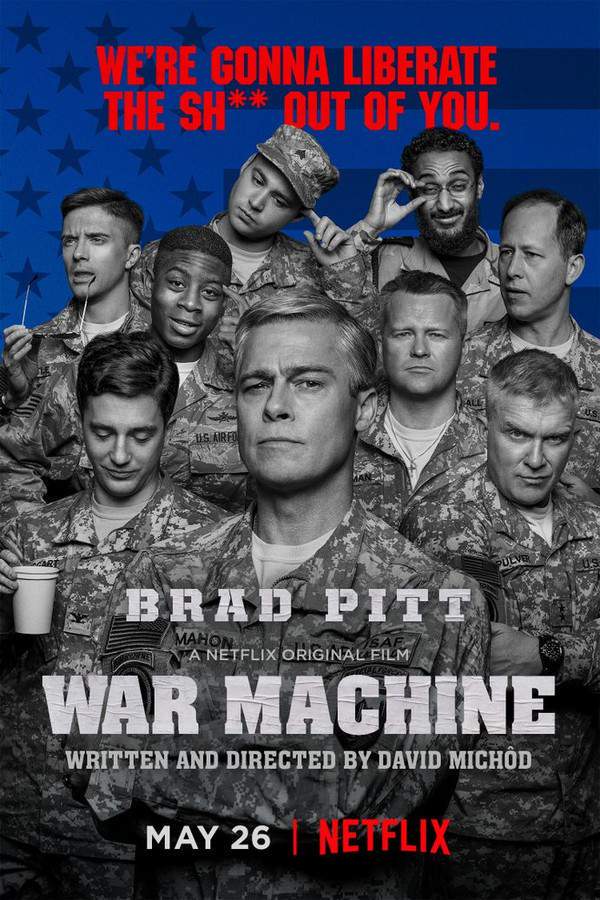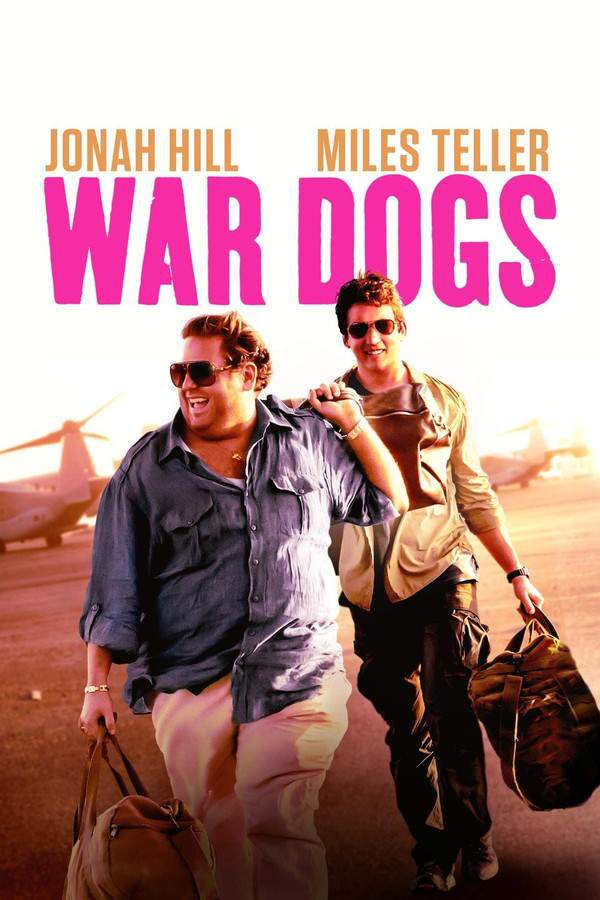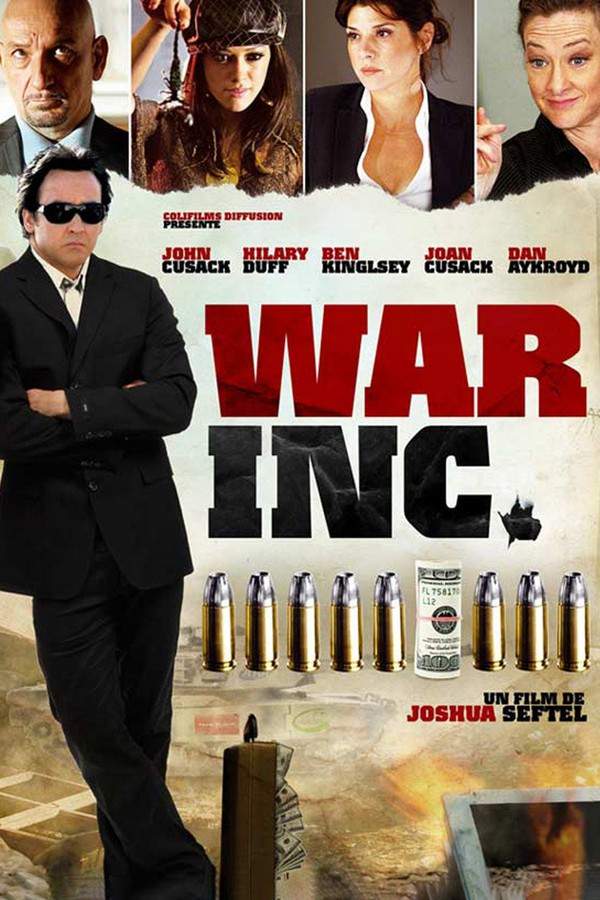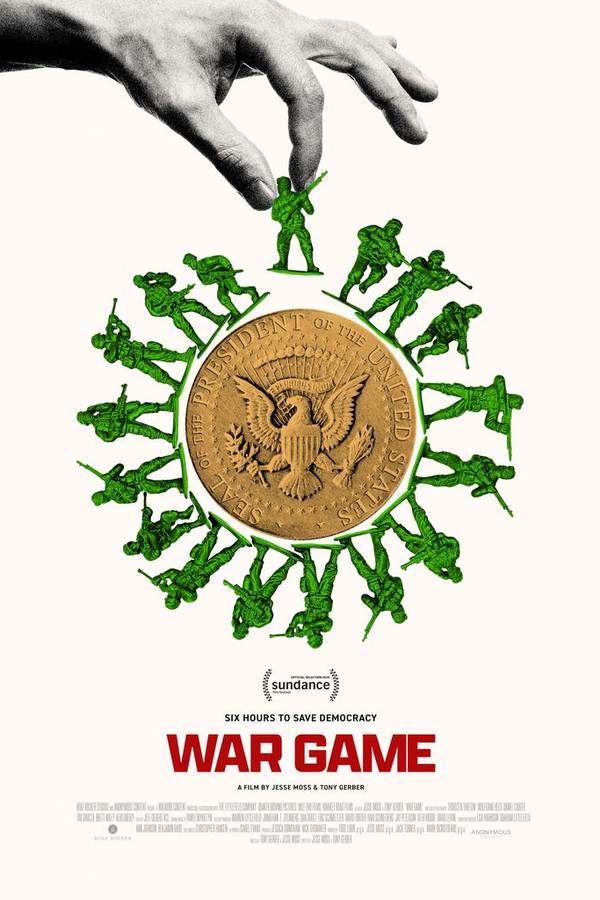
War Machine 2017
Directed by

David Michôd
Made by

Netflix
Test your knowledge of War Machine with our quiz!
War Machine Plot Summary
Read the complete plot summary and ending explained for War Machine (2017). From turning points to emotional moments, uncover what really happened and why it matters.
Four-star General Glen McMahon (Brad Pitt), inspired by General Stanley McChrystal, embarks on a mission to end the conflict in Afghanistan. Tasked with a daunting responsibility, Glen, hailing from a military lineage, brings his impressive background as a straight-A student from West Point and Yale to the forefront. His leadership style endears him to his troops, as he exemplifies a commitment to never sending them into perilous situations without joining them. Before this assignment, he was leading secret operations in Iraq, where he articulated his thoughts on leadership in a book titled One Leg at a Time.
Determined to foster collaboration among the military leaders of the 43 nations under his command, Glen makes his first order of business to coax them out of their offices and into shared spaces. Key figures in his command include Colonel Cory Staggart (John Magaro), his executive officer; Major General Greg Pulver (Anthony Michael Hall), the ISAF Director of Intelligence; USAF Tech Sgt. Andy Moon (RJ Cyler), who takes care of Glen’s tech needs; and Lieutenant Commander Pete Duckman (Anthony Hayes), a mysterious Navy SEAL on his team. Complementing his staff are USN Rear Admiral Simon Ball (Daniel Betts), Matt Little (Topher Grace), Glen’s civilian media advisor, and Sgt. Willy Dunne (Emory Cohen), his personal assistant handling mundane tasks.
Glen’s interactions with Pat McKinnon (Alan Ruck), the United States Ambassador to Afghanistan, and others reveal a series of cautious assessments about what is needed to conclude the war, subtly warning him against requesting additional troops. With a palpable contempt for civilians who wield power without understanding the battlefield, Glen views them as mere obstacles to his mission.
Upon meeting Afghan President Hamid Karzai (Ben Kingsley), Glen is met with reluctance as Karzai feigns illness to evade a planned assessment tour. As Glen surveys the situation in Afghanistan, he comes to grips with the grim reality that the insurgency, steered by local factions rather than formal armies, has thwarted the US military’s efforts. The overarching strategy—aimed at winning the support of the Afghan people through local governance and infrastructure development—has proven problematic since historically, counter-insurgencies have failed globally.
Confronted by a British commander about the dominance of the Taliban in Helmand province, Glen receives advice to retract from there and focus his efforts where the mission may garner some local backing. Counter-insurgency operations consistently reveal their ineffectiveness, yet Glen believes it can succeed if executed correctly. He boldly requests an additional 40,000 troops, provoking anger from Dick Waddle (Nicholas Jones) and being met with an outright refusal from the US Secretary of State. His orders now restrict him under the acronym SNORPP (Systemic Negation Of Repetitive Procedural Practice).
During a candid moment with a group of marines returning from Italy, Glen confronts the despondency within the ranks, exemplified by Sgt. Ricky Ortega (Will Poulter) and Cpl. Billy Cole (Keith Stanfield). They challenge Glen’s idealistic approach to “winning hearts and minds” amidst the ever-present danger they face.
As electoral processes unfold, significant corruption comes to light, prompting Captain Badi Basim (Aymen Hamdouchi), an Afghan National Army officer, to join Glen’s team as Aide-De-Camp. Glen’s frustration mounts when elections are deemed invalid, leading him to leak an assessment report to the media and openly criticize the administration’s lukewarm support during a high-profile interview.
Despite his efforts leading to a troop surge authorized by President Obama (Reggie Brown), Glen feels the weight of a looming expiration date which allows the Taliban to simply bide their time. His travels through Europe yield mixed results; while France agrees to bolster contributions, tensions brew in Germany where political opposition accuses Glen of pursuing personal glory over genuine strategy.
As the troop surge unfolds, Glen maneuvers through military operations in Helmand province. Faced with the harsh realities of combat and the angry response from local families, Glen struggles to win over local leaders who perceive a haunting pattern: without US support, the Taliban would inevitably return.
Amidst these tribulations, journalist Sean Cullen (Scoot McNairy) paints a damning picture of Glen’s leadership in the press, characterizing him and his staff’s behavior as reckless. As the situation escalates, Glen’s anticipated termination occurs; he is recalled to Washington, leaving room for General Bob White (Russell Crowe), his successor, to take charge in the tumultuous landscape of Afghanistan.
War Machine Timeline
Follow the complete movie timeline of War Machine (2017) with every major event in chronological order. Great for understanding complex plots and story progression.
Glen McMahon Takes Command
General Glen McMahon, a four-star general, embarks on his mission to end the conflict in Afghanistan, drawing inspiration from General Stanley McChrystal. He aims to utilize his military lineage and strong educational background to foster effective leadership among his troops.
Introduction of Key Personnel
Glen assembles a diverse team of military leaders, including Colonel Cory Staggart and Major General Greg Pulver. Each member plays a crucial role in supporting Glen’s vision and execution of strategy in Afghanistan.
Interactions with the U.S. Ambassador
During his early meetings, Glen interacts with Pat McKinnon, the U.S. Ambassador to Afghanistan, discussing the complexities of concluding the war. Glen receives warnings about the dangers of requesting more troops, highlighting tensions between military goals and political realities.
Meeting Afghan President Hamid Karzai
Glen meets President Hamid Karzai, who attempts to avoid discussions by feigning illness. This encounter underlines the challenges Glen faces with local leaders as he assesses the turbulent situation in Afghanistan.
Assessing the Insurgency
Glen realizes that the insurgency in Afghanistan is primarily driven by local factions rather than structured armies. This grim recognition leads him to reconsider the U.S. military strategy of winning hearts and minds through local governance and development.
Advice from British Commander
A British commander advises Glen to retract from combat-heavy areas like Helmand province to focus on regions that may support the mission. This conversation prompts Glen to rethink his operational approach amidst ongoing military concerns.
Request for Additional Troops
Glen boldly requests an additional 40,000 troops to bolster U.S. efforts in Afghanistan. This ambitious move incites anger among his peers, including Dick Waddle, and is met with refusal from the U.S. Secretary of State, limiting Glen's operational freedom.
Addressing Marine Despondency
In a candid discussion with returning marines, Glen confronts the morale issues among his troops. Their challenges against the harsh realities of war highlight the difficulties of implementing his strategy in the face of persistent danger.
Corruption Revealed During Elections
As electoral processes unfold in Afghanistan, significant corruption emerges, and Captain Badi Basim joins Glen’s team to help navigate these issues. Glen’s growing frustration leads him to leak a critical assessment report to the media, showcasing his discontent with bureaucratic hindrances.
Troop Surge Authorized
Despite facing numerous setbacks, Glen's considerable efforts culminate in a troop surge authorized by President Obama. However, Glen remains anxious about the Taliban exploiting the precarious situation as he navigates various political landscapes.
Challenges in Helmand Province
As the troop surge takes shape, Glen encounters the grim realities of combat in Helmand province. Local families react negatively to military presence, creating further challenges in earning local support amid the ongoing conflict.
Journalist's Critical Expose
Amid escalating tensions, journalist Sean Cullen publishes a highly critical portrayal of Glen’s leadership, deeming his approaches reckless and counterproductive. This public scrutiny adds to Glen's mounting pressure and complicates his position further.
Glen's Recall to Washington
In light of the various complications and the critical media portrayal, Glen is ultimately recalled to Washington. His departure marks a significant shift in military leadership as General Bob White prepares to step into the challenging role left in a tumultuous Afghanistan.
War Machine Characters
Explore all characters from War Machine (2017). Get detailed profiles with their roles, arcs, and key relationships explained.
Glen McMahon (Brad Pitt)
A dedicated and charismatic four-star general, Glen McMahon exemplifies commitment and leadership as he navigates the complexities of the Afghan conflict. His idealism and determination to connect with his troops contrast sharply with the political obstacles he encounters, leading to profound personal and professional challenges.
Colonel Cory Staggart (John Magaro)
Cory serves as Glen’s executive officer, supporting him in strategizing military operations. His portrayal reflects a blend of loyalty and pragmatism, often serving as a grounding force within the team amidst the chaos of war.
Major General Greg Pulver (Anthony Michael Hall)
Greg embodies the intelligence side of the military command, providing critical insights and analysis. Balancing tactical knowledge with the nuances of political strategy, he highlights the interconnectedness of military and civilian roles in conflict.
USAF Tech Sgt. Andy Moon (RJ Cyler)
As the tech specialist, Andy facilitates the integration of technology in military strategies. His role represents the modernization of warfare and the critical importance of tech support in military operations.
Lieutenant Commander Pete Duckman (Anthony Hayes)
A mysterious Navy SEAL, Pete's character adds an element of intrigue and depth to the team. His covert operations background showcases the various facets of military strategy during the conflict.
Matt Little (Topher Grace)
Matt serves as Glen’s civilian media advisor, adeptly navigating the media landscape to facilitate communication of military goals. His role underscores the importance of public perception in military efforts.
Sgt. Willy Dunne (Emory Cohen)
Willy is portrayed as Glen's personal assistant, managing day-to-day tasks amidst the ups and downs of military life. His character reflects the unsung roles that support leaders behind the scenes.
Pat McKinnon (Alan Ruck)
As the United States Ambassador to Afghanistan, Pat provides insight into the political dynamics at play. His cautious demeanor reflects the challenges of balancing diplomatic relations while supporting military efforts.
Captain Badi Basim (Aymen Hamdouchi)
An Afghan National Army officer, Captain Basim represents the local perspective in the military landscape. His inclusion emphasizes the importance of collaboration and understanding within the diverse dynamics of the war.
Sean Cullen (Scoot McNairy)
A journalist critical of Glen's leadership, Sean's character highlights the tension between media portrayal and military realities. His perspective serves as a counterpoint to the idealism of military leaders.
War Machine Settings
Learn where and when War Machine (2017) takes place. Explore the film’s settings, era, and how they shape the narrative.
Time period
Early 2000s
Set in the early 2000s, the film reflects a pivotal era in the War on Terror following the 9/11 attacks. This period was characterized by military interventions in the Middle East, aimed at combating terrorism and stabilizing the region while facing complex sociopolitical challenges.
Location
Afghanistan, Helmand Province, Europe
The film primarily takes place in Afghanistan, a country known for its rugged terrain and complex political landscape. Helmand Province is highlighted as a critical area of military operations and insurgency during the conflict. Glen's travels through Europe also showcase the international implications of the war and the support from other nations.
War Machine Themes
Discover the main themes in War Machine (2017). Analyze the deeper meanings, emotional layers, and social commentary behind the film.
⚔️
Military Strategy
The film delves into the complexities of military strategy amidst a war effort, exploring the challenges and failures of counter-insurgency operations. It highlights the tension between military objectives and political realities, demonstrating the frustrations faced by leaders on the ground.
🌐
Leadership
Glen McMahon's character explores the nuances of leadership in a war environment, emphasizing the importance of collaboration and direct involvement with troops. His journey reflects the challenges leaders face when navigating between military goals and political pressures.
💔
Disillusionment
The theme of disillusionment is prevalent as Glen grapples with the grim realities of war and the disconnect between military efforts and political decisions. His interactions reveal the emotional fatigue of soldiers and the futility of strategies that fail to consider the local context.

Coming soon on iOS and Android
The Plot Explained Mobile App
From blockbusters to hidden gems — dive into movie stories anytime, anywhere. Save your favorites, discover plots faster, and never miss a twist again.
Sign up to be the first to know when we launch. Your email stays private — always.
War Machine Spoiler-Free Summary
Discover the spoiler-free summary of War Machine (2017). Get a concise overview without any spoilers.
In the relentless heat of a distant war zone, a high‑ranking U.S. officer is thrust into the dizzying chaos of international military politics. The film paints Afghanistan not just as a battlefield but as a sprawling, bureaucratic maze where generals, diplomats, and journalists collide. A sharply satirical tone threads through every interaction, turning the gravity of conflict into a darkly comic commentary on power and ambition. The world feels both grand in its geopolitical scale and intimate in the cramped meeting rooms where decisions are made over stale coffee and shaky alliances.
Glen McMahon arrives with a reputation forged by elite schooling and a family legacy of service, exuding the confidence of a man who believes he can command both troops and destiny. His charisma draws a cast of loyal staff—an eager executive officer, a tech‑savvy sergeant, and a civilian media advisor—each reflecting a different facet of the modern war machine. Yet beneath his bravado simmers a growing tension between his instinct to lead from the front and the distant, often indifferent, civilian overseers who dictate his limits. The atmosphere crackles with the uneasy blend of earnest idealism and cynical pragmatism, hinting at the fragile balance between heroic aspiration and reckless hubris.
Watching from the periphery is a relentless reporter whose probing questions threaten to expose the thin veneer of competence that holds the operation together. As the general’s bold plans meet the unyielding realities of insurgency, local politics, and multinational expectations, the film teeters between earnest critique and absurdist farce. The audience is left with a sense of looming uncertainty: can a single larger‑than‑life personality truly steer the course of a war, or will the very structures meant to support him prove his undoing? This tension fuels the story’s dark humor, inviting viewers to question the fine line between authority and folly.
Can’t find your movie? Request a summary here.
Movies with Similar Twists and Themes
Uncover films that echo the narrative beats, emotional arcs, or dramatic twists of the one you're exploring. These recommendations are handpicked based on story depth, thematic resonance, and spoiler-worthy moments — perfect for fans who crave more of the same intrigue.
Featured on this page

What's After the Movie?
Not sure whether to stay after the credits? Find out!
Explore Our Movie Platform
New Movie Releases (2025)
Famous Movie Actors
Top Film Production Studios
Movie Plot Summaries & Endings
Major Movie Awards & Winners
Best Concert Films & Music Documentaries
Movie Collections and Curated Lists
© 2025 What's After the Movie. All rights reserved.














